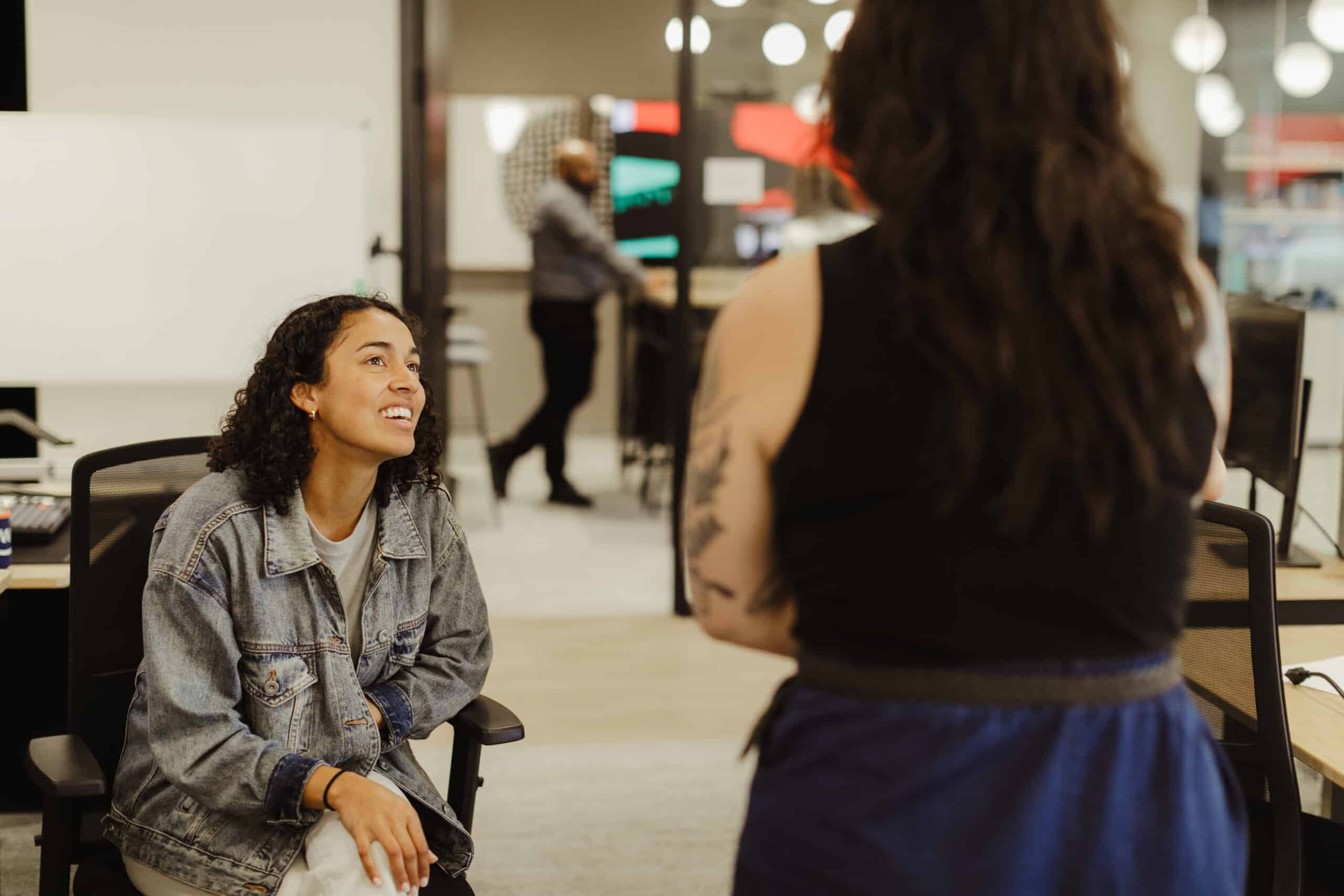Knowing how to solicit and give feedback is an essential part of being a software consultant. Yet, for new developers, learning these skills can be rocky at the beginning. Building the skill of flexibility and receptivity to feedback is challenging to tackle alone when new to the industry, but it is a necessary skill for new developers to adopt. At Atomic Object, one way this pain point is addressed is through regular feedback sessions with your pair and/or your tech lead.
A feedback session is a 30- to 60-minute meeting where you can discuss successes and shortcomings openly. It gives space for those working together to reflect on their dynamic. It can be a place to resolve unsettled conflicts or differences in styles of pairing, and it can also be a time to commend what’s going well. These sessions clear the air and give developers space to give constructive feedback, helping pairs reflect more thoughtfully on what is and isn’t working.
Not all software development companies prioritize these sessions, though. So, what makes these feedback sessions worth a company’s time and effort? Software development itself is a process of problem-solving through learning from mistakes, and the field already teaches new developers to overcome struggles and learn through trial and error. How do feedback sessions uniquely bring value to developer teams?
How Feedback Sessions Provide Value
Feedback sessions are a useful resource for building healthy teams and open communication, for a variety of reasons. More obviously so, feedback sessions help new developers identify areas of improvement, and they allow more senior developers to offer guidance about what to work on. They create space for conversations that might otherwise be intimidating or awkward to initiate. Here are a few reasons why feedback sessions for new developers (and more senior developers alike) are worthwhile.
Reduce fear of failure.
Regularly engaging in feedback helps new developers admit shortcomings and adopt a growth mindset. In turn, this reduces the pressure new employees may feel about things going wrong on their watch. And, when people openly admit failure and how they worked through it, it creates points of connection between developers, and trust can be built within a team. Making mistakes is a normal and regular part of the problem-solving process in software development. The faster a developer can learn to overcome failure and perfectionism, the more quickly they can become proficient.
Improve the pairing experience.
Feedback sessions also improve pair programming skills by encouraging critical assessment of what is and isn’t working in their dynamic. While pair programming, it is not uncommon to need to make small adjustments to working styles to collaborate better. Feedback sessions emphasize the common understanding that there is always room for improvement for both parties and that giving feedback will improve the quality of pairing. Because feedback sessions happen every other week, there is space to resolve differences and frustrations quickly, rather than letting them silently build over time.
Here are a few questions I’ve found helpful to reflect on in feedback sessions with my pairs:
- Does each person feel that their ideas are heard?
- Do we resolve disagreements productively?
- Are there miscommunications we haven’t addressed yet?
- Have we struck a good balance of switching up pairing roles?
Reframe failures.
Feedback is often less productive when conveying only approval or disapproval, so ideally, these sessions are a balance of critical feedback and positive feedback. By including both feedback, a manager or senior developer is able to reframe a new developer’s successes or shortcomings on a project. New developers are often not in the practice of reframing shortcomings and success on projects, and senior developers can be helpful guides in teaching new developers how to absorb failure better.
For new developers, it’s helpful to remember the larger goals at play in a project. By separating self from the goal, you can transform failure from something that undermines self-worth into a tool for learning. With this in mind, co-workers become co-collaborators in the overall development of the team, allowing everyone to receive feedback more easily.
The Hidden Brain podcast put out an episode called “Learning from Your Mistakes”, and they discuss how novices take feedback compared to experts. The experts’ self-confidence in their skills puts them in a better position to receive feedback without questioning their belonging or their value, unlike novices. Because they know that they belong and have skills to offer, feedback merely informs them of where they can improve. For those who are experts at feedback, feedback is informational, not personal, and not affecting their self-esteem. How feedback is presented matters and affects how the information is received. Ideally, the most effective feedback is given honestly and benevolently.
Feedback Sessions for New Developers
Overall, feedback sessions require a relatively low commitment and cost with a high output of increased trust, honesty, and growth within a development team. These feedback sessions are essential for new developers, in particular, honing the skills of seeing failure as an opportunity to grow. Furthermore, these feedback sessions also show new developers that their team cares about their growth and values them as a contributors.

